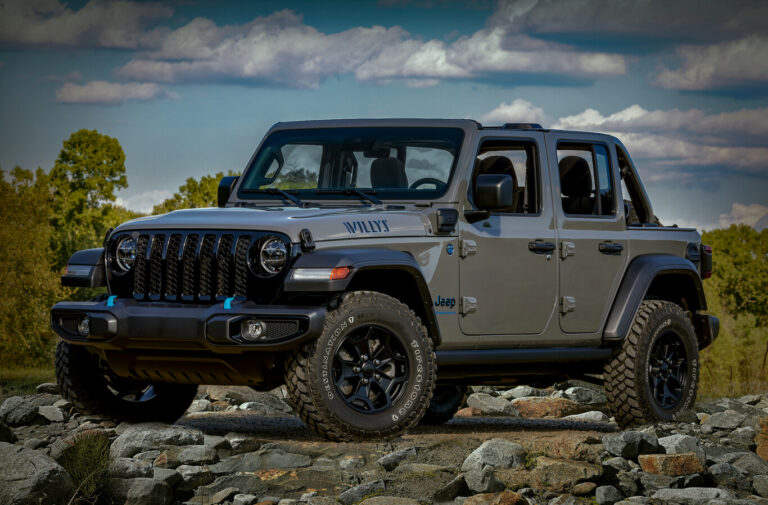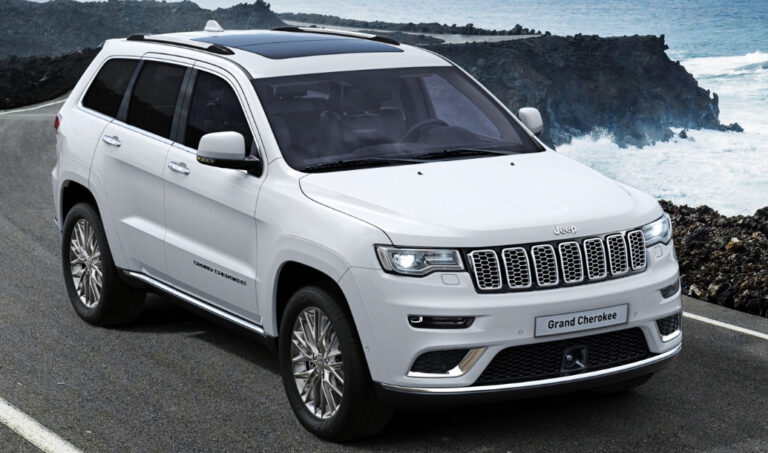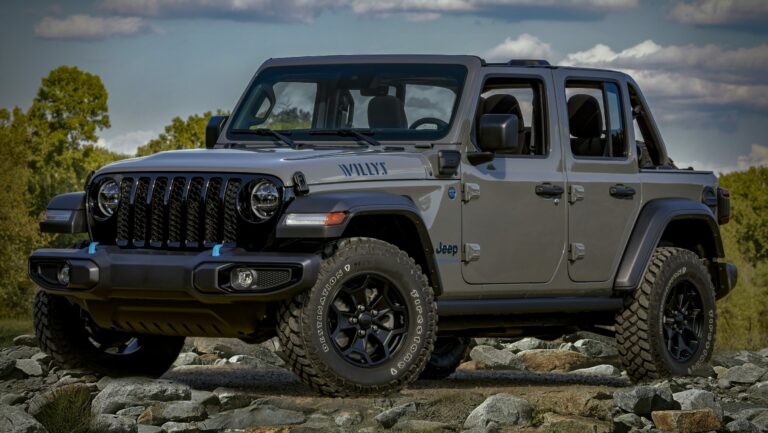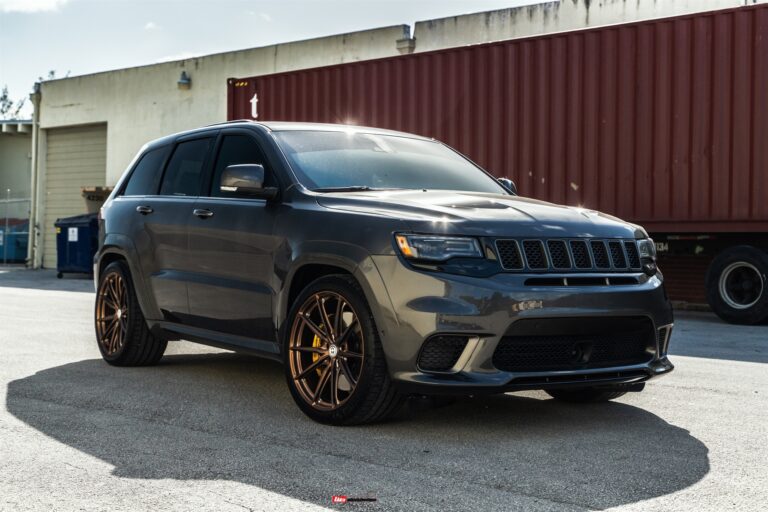2000 Jeep Grand Cherokee Transmission For Sale: A Comprehensive Buyer’s Guide
2000 Jeep Grand Cherokee Transmission For Sale: A Comprehensive Buyer’s Guide /jeeps.truckstrend.com
The 2000 Jeep Grand Cherokee (WJ generation) holds a special place in the hearts of many automotive enthusiasts. Known for its robust off-road capability, comfortable interior, and distinctive styling, it remains a popular choice for daily driving and adventurous excursions alike. However, like any vehicle approaching or exceeding two decades of service, certain components, especially the transmission, can begin to show signs of wear and tear. When your trusty 2000 Grand Cherokee starts exhibiting rough shifts, slipping gears, or a complete loss of drive, the thought of a transmission replacement often comes to mind. Finding the right 2000 Jeep Grand Cherokee Transmission For Sale is not just about locating a part; it’s about understanding your options, ensuring compatibility, and making an informed decision that will keep your WJ on the road for years to come. This comprehensive guide will walk you through everything you need to know about purchasing a replacement transmission for your beloved 2000 Grand Cherokee.
The Heart of Your 2000 Jeep Grand Cherokee: Understanding its Transmission
2000 Jeep Grand Cherokee Transmission For Sale: A Comprehensive Buyer’s Guide
To make an informed purchase, it’s crucial to understand which transmission your 2000 Jeep Grand Cherokee utilizes, as there were two primary options depending on the engine:
- 42RE Automatic Transmission: This transmission was paired with the venerable 4.0L Inline-6 (I6) engine. It’s a four-speed automatic, electronically controlled, and a direct evolution of earlier Chrysler transmissions. While generally reliable, age and lack of maintenance can lead to common issues like solenoid failures, pressure regulator valve wear, and converter clutch problems.
- 45RFE Automatic Transmission: This more advanced five-speed automatic (though often functions as a four-speed with an additional overdrive gear in specific conditions) was exclusively mated to the powerful 4.7L V8 engine. The 45RFE is known for its robust design and adaptability but can also suffer from valve body issues, sensor failures, and torque converter problems over time.
Common Symptoms of Transmission Failure:
Regardless of the specific model, if your Grand Cherokee is experiencing any of the following, a transmission replacement might be imminent:
- Slipping Gears: The engine revs, but the vehicle doesn’t accelerate as expected, or gears don’t engage smoothly.
- Hard or Delayed Shifts: Abrupt jerking motions or significant pauses between gear changes.
- No Engagement: The vehicle won’t move forward or backward when put into gear.
- Warning Lights: The "Check Engine" light or "Service 4WD" light might illuminate, often accompanied by specific transmission-related fault codes (P07xx series).
- Unusual Noises: Whining, clunking, or grinding sounds coming from the transmission area.
- Fluid Leaks: Red or brown fluid puddles under the vehicle.

While some issues can be repaired, severe internal damage or multiple simultaneous failures often make a full transmission replacement a more cost-effective and reliable long-term solution.
Navigating the Market: Types of 2000 Grand Cherokee Transmissions For Sale
When searching for a replacement, you’ll encounter a few distinct categories of transmissions, each with its own pros and cons:
- Used Transmissions (Salvage/Junk Yard):
- Pros: Most affordable upfront cost. Readily available.
- Cons: Unknown history and mileage. No guarantee of reliability. Typically comes with a very limited (if any) warranty, often just a few days to a month. You might be buying someone else’s problem.
- Rebuilt Transmissions:
- Pros: An existing transmission is disassembled, inspected, and worn components (gaskets, seals, clutch packs, bands) are replaced. Generally more reliable than used. Often available from local transmission shops. Usually comes with a moderate warranty (e.g., 6 months to 1 year).
- Cons: Quality can vary significantly depending on the rebuilder’s expertise and the quality of parts used. Internal hard parts might not be replaced if they appear "good enough."
- Remanufactured Transmissions:
- Pros: The gold standard for replacement transmissions. These are fully disassembled, cleaned, and thoroughly inspected. All wear components are replaced with new or re-engineered parts, and common failure points are upgraded. They are tested to meet or exceed OEM specifications. Often come with a new or remanufactured torque converter and a substantial warranty (e.g., 2-5 years, often unlimited mileage).
- Cons: The most expensive option upfront.
- New (OEM) Transmissions:
- Pros: Brand new from the factory. Guaranteed perfect fit and function.
- Cons: Extremely rare for a 2000 model year vehicle and prohibitively expensive if found. For a vehicle of this age, a remanufactured unit offers virtually the same quality at a fraction of the theoretical new cost.
Finding Your Match: Where to Purchase a 2000 Jeep Grand Cherokee Transmission
Your search for a 2000 Jeep Grand Cherokee Transmission For Sale can lead you to several sources:
- Online Auto Parts Marketplaces: Websites like Car-Part.com, eBay, and Craigslist are excellent for finding used transmissions from salvage yards across the country. Be prepared to ask many questions and verify seller credibility.
- Local Salvage Yards/Auto Recyclers: Physically visiting a local yard allows you to inspect the transmission (if removed) and potentially negotiate. They often have a good selection for popular models like the Grand Cherokee.
- Specialized Transmission Shops/Rebuilders: Many local transmission shops offer rebuilt units or can rebuild your existing one. This provides the benefit of local support and installation services.
- Online Remanufactured Transmission Suppliers: Companies like LKQ, Jasper Engines & Transmissions, and other specialized online retailers focus exclusively on remanufactured units. They offer nationwide shipping and robust warranties.
Crucial Considerations Before You Buy: Ensuring Compatibility and Value
Purchasing the correct transmission is paramount. A wrong fit can lead to wasted money, time, and frustration.
- Engine Type is Non-Negotiable: As discussed, the 4.0L I6 uses the 42RE, and the 4.7L V8 uses the 45RFE. These are NOT interchangeable. Verify your engine type (check your VIN, under the hood, or in the owner’s manual).
- 2WD vs. 4WD: The tailshaft housing and output shaft differ significantly between 2-wheel-drive and 4-wheel-drive models. Ensure the transmission you purchase matches your vehicle’s drivetrain configuration.
- Transmission ID Tag/VIN: Look for an identification tag on your existing transmission. This tag often contains the specific part number or build date, which can be critical for an exact match, especially for remanufactured units. When buying a used unit, try to get the VIN of the donor vehicle to verify compatibility.
- Warranty Details: This is arguably the most important factor.
- Duration: How long is the warranty valid (e.g., 30 days, 1 year, 3 years)?
- Coverage: What exactly does it cover? Parts only? Labor? Towing?
- Transferability: Is the warranty transferable if you sell the vehicle?
- Conditions: Are there specific maintenance requirements (e.g., fluid changes) to keep the warranty valid?
- Included Components: Does the transmission come with a torque converter? For the 45RFE, it’s often recommended to replace the torque converter with the transmission. What about sensors or solenoids? Clarify what’s included in the price.
- Shipping Costs & Core Charge: If buying online, shipping a transmission can be expensive due to its weight and size. Additionally, many sellers (especially for rebuilt/remanufactured units) will charge a "core charge." This is a refundable deposit that you get back when you return your old transmission (the "core") to them. Ensure you understand these costs upfront.
- Seller Reputation: Always check reviews and ratings for online sellers or ask for references from local shops. A reputable seller will be transparent about their products and services.
Installation and Beyond: Practical Advice for Your Transmission Swap
Once you’ve secured your replacement transmission, the next step is installation.
- DIY vs. Professional Installation: Replacing a transmission is a complex job requiring specialized tools (transmission jack, appropriate sockets, possibly a lift) and significant mechanical expertise. For most individuals, professional installation by a qualified mechanic or transmission shop is highly recommended. This also provides the benefit of their labor warranty.
- Pre-Installation Checks: Before installing, thoroughly inspect the new transmission for any shipping damage or missing components. Check the transmission cooling lines for kinks or blockages, and ensure the transmission mounts are in good condition.
- Fluids and Filters: Always install a new transmission filter and fill the transmission with the correct type and amount of fluid. For the 2000 Jeep Grand Cherokee, this is typically ATF+4 fluid. Do not reuse old fluid.
- Post-Installation: After installation, ensure all electrical connectors are secure and the driveshafts are properly aligned. Some vehicles may require a "quick learn" procedure for the transmission control module (TCM) to adapt to the new unit. Perform an initial test drive in a safe area, listening for unusual noises and checking for smooth shifts. Monitor fluid levels closely after the first few drives.
- Preventative Maintenance: To maximize the lifespan of your new transmission, adhere to the manufacturer’s recommended maintenance schedule for fluid and filter changes. This is typically every 30,000 to 60,000 miles, depending on driving conditions.
Price Table: 2000 Jeep Grand Cherokee Transmission For Sale (Estimated Ranges)
Please note these are estimated price ranges and can vary based on supplier, warranty, availability, and market conditions. Prices do not include shipping or installation.
| Transmission Type | Engine Compatibility | Price Range (USD) | Key Features / Notes |
|---|---|---|---|
| Used | 4.0L I6 (42RE) | $400 – $900 | Unknown mileage/history. Very limited or no warranty (e.g., 30-90 days). Cheapest option, but highest risk. Often does not include torque converter. |
| Used | 4.7L V8 (45RFE) | $500 – $1000 | Same risks as above. |
| Rebuilt | 4.0L I6 (42RE) | $1,200 – $2,000 | Disassembled, inspected, and worn parts replaced. Warranty typically 6 months – 1 year. Quality varies by rebuilder. May or may not include torque converter. |
| Rebuilt | 4.7L V8 (45RFE) | $1,500 – $2,500 | Same as above. |
| Remanufactured | 4.0L I6 (42RE) | $1,800 – $2,800 | Restored to OEM specifications or better. Extensive testing. Strong warranty (2-5 years, often unlimited mileage). Often includes new/reman torque converter. |
| Remanufactured | 4.7L V8 (45RFE) | $2,000 – $3,000+ | Same as above. Highest quality and longest warranty. |
Note: Core charges typically range from $200-$500 and are refundable upon return of your old transmission.
Frequently Asked Questions (FAQ)
Q1: How do I know which transmission my 2000 Grand Cherokee has?
A1: The easiest way is by your engine. If you have the 4.0L Inline-6, it’s a 42RE. If you have the 4.7L V8, it’s a 45RFE. You can also check your vehicle’s VIN or the transmission’s identification tag.
Q2: Is it worth replacing the transmission in a 2000 Grand Cherokee?
A2: Often, yes. If the rest of the vehicle (engine, frame, body) is in good condition, replacing the transmission is significantly cheaper than buying a new or newer used vehicle. The WJ Grand Cherokee is a durable platform, and a new transmission can give it many more years of life.
Q3: What’s the difference between a rebuilt and a remanufactured transmission?
A3: A rebuilt transmission typically replaces only the worn components (seals, gaskets, clutch packs). A remanufactured transmission undergoes a more rigorous process where all wear components are replaced, and common failure points are upgraded. They are tested to meet or exceed original specifications and often come with a more comprehensive warranty.
Q4: Do I need a new torque converter with my replacement transmission?
A4: For remanufactured transmissions, a new or remanufactured torque converter is almost always included and recommended. For used or rebuilt units, it’s highly advisable to purchase a new torque converter, as a failing converter can quickly damage a new transmission.
Q5: How long should a replacement transmission last?
A5: A properly installed remanufactured transmission, with regular maintenance, can last as long as the original, often 100,000 to 200,000 miles or more. Rebuilt units can last similarly but depend heavily on the quality of the rebuild. Used transmissions are a gamble, with unpredictable lifespans.
Q6: Can I install the transmission myself?
A6: Replacing a transmission is a complex mechanical job requiring specialized tools, knowledge, and physical strength. While possible for experienced DIY mechanics, it’s generally recommended to have a professional install it to ensure proper function and validate any warranty.
Q7: What is a "core charge" and how does it work?
A7: A core charge is a refundable deposit added to the price of a replacement part (like a transmission). You pay it upfront and then get it back when you return your old, failed transmission (the "core") to the seller. This encourages recycling and ensures the seller can remanufacture or rebuild the old unit.
Conclusion
Finding a 2000 Jeep Grand Cherokee Transmission For Sale is a significant step in prolonging the life of your vehicle. By understanding the different types of transmissions available, knowing where to source them, and carefully considering compatibility, warranty, and overall value, you can make an informed decision. While the upfront cost of a remanufactured unit might be higher, its superior quality and extensive warranty often make it the most cost-effective and reliable long-term solution. With the right transmission and proper installation, your iconic 2000 Jeep Grand Cherokee can continue to tackle adventures for many more years to come.



